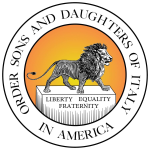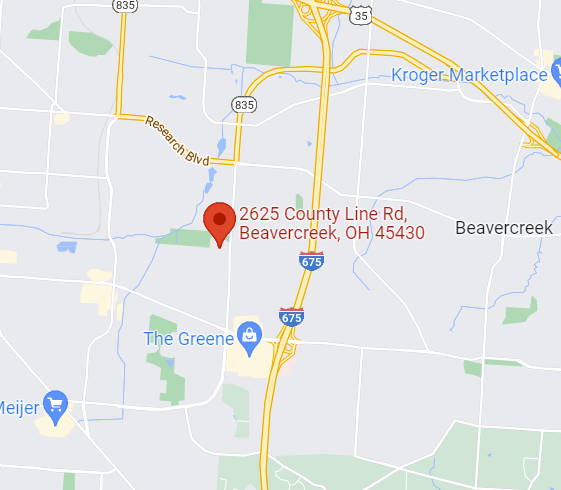Lieutenant Giovanni (John) Pirelli
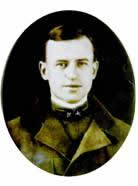
It is this man, that our Order Sons of Italy in America, Lodge #1633, in Dayton, Ohio is named after.
Giovanni Pirelli was born in Milan, Italy in 1884. He was born into a prominent Italian family whose business and wealth derived from rubber and manufacturing named Pirelli Tires.
Although not much has been printed on how or when Giovanni (John) Pirelli got involved with aviation, he did become a pilot and was commissioned in the Italian Air Force during World War I.
It is interesting to note that the Italians were using aircraft in conflicts dating back to the Italian-Turkish War, in November 1911. This occurred about 8 years after the Wright Brothers recorded their first flight in Kitty Hawk, North Carolina in 1903.
To Giovanni Pirelli’s credit, he spent three years on the Italian-Austrian battle front during World War I. He was also credited with downing at least four enemy airplanes and had been decorated for his daring and bravery. He was awarded a special military cross of merit from the Italian Government.
It was following the Armistice, after World War I, that it was essential that during this uncertainly, Giovanni Pirelli and others were sent to Dayton, Ohio at McCook Field. There they tested the Balilla aircraft, which had been built at the Ansaldo Works in Genoa, Italy.
As reported from the Dayton Journal Wednesday February 5, 1919
“Lieut. Giovanni Pirelli Is Instantly Killed at Wilbur Wright Field”
Although he had spent nearly three years upon the Italian-Austrian battle fronts, had downed numerous enemy battle planes, and wore at least four decorations for daring and bravery, Lieutenant Giovanni Pirelli, age 35, fell to his death yesterday afternoon at Wilbur Wright Field.
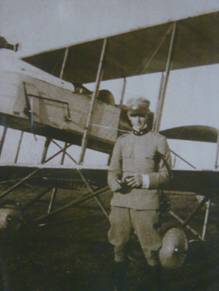
Lieutenant Pirelli was instantly killed, it is believed, life being extinct when officers and others at the post, who had seen him take a nose-dive to earth, reached his side. It is estimated the unfortunate hero-aviator fell from a height of about 200 feet. Just what happened to his plane is not known, because it is said his controls were in perfect working order even after the wrecked machine was inspected.
Lieutenant Pirelli, along with Lieutenant Cantoni and Lodovico Fusari, their mechanics, all of who is a part of the Italian military mission of Aeronautics, came to Dayton about a month ago. They were living at the Miami Hotel and were conducting a series of experiments at McCook Field, using the Balilla and S.V.A. machines. They were under command of Captain Carlo Tappi, now stationed in New York.
The dead officer, on account of weather conditions, delayed his experiments yesterday and did not make an ascension until about 3 o’clock. He was piloting a Balilla machine, which had been built at the Ansaldo Works in Genoa, Italy.
“Everything was working perfectly”, said the mechanic, Fusari, “when he left the ground. He soared away toward Wright Field at modest height and seemed about to describe a circle preparatory to greater altitude and engaging in some stunt flying, when his machine suddenly entered a nose-dive and plunged to earth. No one was near the spot where he fell. The machine was completely wrecked.

The unfortunate man’s chest crushed and he suffered numerous cuts and bruises about the arms and legs. After full military investigation the body was turned over to Undertaker R.R. Whitmer, who prepared it for burial and is holding it awaiting word of its disposition from Captain Tappi. It is thought the body will shipped to his former home in Milan for burial.
According to mechanic Fusari, who was extremely fond of his associate, Lieutenant Pirelli was one of the most loved and respected men in the aviation section of the Italian Army. He had been in the service about three years, and was noted for his daring and effective work against the Austrian aviators. He first piloted a scout machine and later became what is there known as a hunter. While engaged in this latter activity of hunting out enemy flyers he succeeded in downing several and has to official credit at least four. He was given three decorations for his work, and his government added another that was greatly cherished, a special “Military Cross of Merit”
The Dayton Journal Wednesday, February 5, 1919 Prominent Family
Lieutenant Pirelli’s father, mother and two brothers reside in Milan. All are prominent in social, manufacturing and other circles and posses extreme wealth it is said. The father is the head of Pirelli and Company, said to be the largest manufactures of rubber in all Italy, maintaining offices in that country, as well as in England and other places. Lieutenant Cantoni, his partner in the experimental work, left the city for New York Monday evening, but was halted on his way there by a telegram and is now returning to Dayton. Captain Tappi and others of the aviation section are expected in Dayton today or tomorrow to take charge of the body. The Dayton Journal Thursday, February 6, 1919 Local Italians – Tribute Hero Local Italians headed by Peter Cusimano, Dayton Consolidated Fruit Company, 222 East Third Street will supply a floral piece and assist in arrangements for sending the body of Lieutenant Giovanni Pirelli, killed here Tuesday, to New York City. Captain Carlo Tappi, commanding the Italian Aeronautic Mission, is expected in the city, to complete arrangements for the shipment of the body east. It is likely that this will be done tonight, and that as soon as possible shipment overseas will be made. 11 Years Later
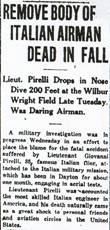
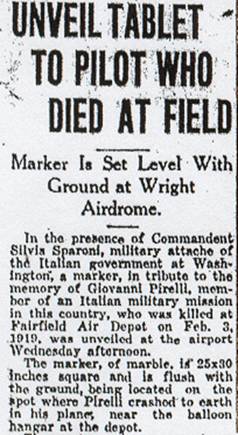
Dedication of Memorial To Lieutenant Giovanni Pirelli Speech given by General Foulois at Wright Field March 12, 1930.
We are gathered today upon this historic spot to honor the memory of Lieutenant Giovanni Pirelli of Italy, who a little over a decade ago was our comrade in arms against the Central Powers of Europe. It was here Lieutenant Pirelli on February 3, 1919 , made the great sacrifice, falling to his death in an airplane accident. The exact cause of which is still unknown to us. During the uncertain weeks immediately following the signing of the Armistice, Lieutenant Pirelli was a member of the Italian Military Mission in this country. It was essential that experimental and research activities should “carry on” without interruption until conditions were definitely settled. It was while cooperating to the full with American engineers and giving them the benefit of his broad aerial experience that the end came so suddenly. His extreme devotion to duty and his unusually pleasing personality endeared him to our hearts from his very arrival in our country. He was really one of us in a common cause. A little insight into his personality is furnished in the devotion of his assistant, Lieutenant Cantoni, and his mechanics, Lodovico Fusari, was well as the esteem in which he was held by Captain Carlo Tappi, his immediate superior. Lieutenant Pirelli at the time of his death was survived by his parents and two brothers, all prominent residents of Milan, Italy. Prior to his arrival in the United States the Lieutenant distinguished himself repeatedly as a military aviator over the Austrian Front. He specialized in lone pursuit missions. For general gallantry in action and the shooting down of several Austrian aviators, he received many decorations from his Government, including the much coveted “Military Cross of Merit”. Eleven years have passed but his sacrifice has not been made in vain. His example while amongst us here and his passing at a time when he was so actively engaged in service to two great nations cannot soon be forgotten. It is one more important link in the friendship bond between Italy and America.
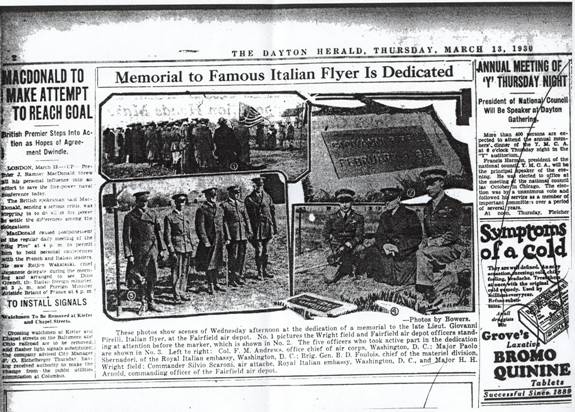
Dayton, Ohio Wright Field March 12, 1930 By Commander Silvie Scaroni Air of the Royal Italian Embassy Washington
When the family of Giovanni Pirelli entrusted me with the task of ascertaining whether the American Government would have any objection in placing a memorial stone on the spot where their son lost his life about ten years ago, I realized immediately that my task would have been quite an easy one, as my experience of four and a half years in this country has shown me that the American people do not forget their friends and always respond to calls of the heart. Giovanni Pirelli, whom I had the distinction of having as an associate in several actions in the World War I, was one of the most loved of our comrades. We respected him for his professional ability, we respected him still more and loved him more for his remarkable personality, and when we in Italy heard of his death, we felt that another brother was lost and that the Italian Aviation has lost one of its most valuable members. We, his old friends in War, in particular, felt so proud of having Pirelli here on this side of the Atlantic, because we were perfectly convinced the Italian Aviation could not have been better represented among our American comrades.
Lieutenant Pirelli fell to his death in this spot, where the American Government, accepting the suggestion of the Assistant Secretary of War for Aviation, Mr. Trubee Davison, has authorized the placing of this simple but significant and everlasting memory of our great and heroic friend. In handing over to you this memorial stone in the name of the Pirelli family and myself, I wish to express to the American Government the sentiment of our very deep gratitude for this further token of friendship and generosity, and I wish to thank also Mr. Trubee Davison for having cooperated so efficiently in obtaining permission to place this memorial stone, and I wish to thank General Fechet, the Chief of the Army Air Corps, for his extremely kind act in causing the officers of the Army Air Corps to honor with their presence here the memory of Giovanni Pirelli, and for having sent here from Washington DC, Colonel Andrews to represent him at the ceremony. And to you, too, General Foulois, as Commanding Officer of this historic station, which will from now on hold this symbol of an heroic spirit, not lost in vain. I express the thanks and everlasting gratitude of his parents and relatives. Convinced, as I am that this simple stone will also be a symbol of friendship between the American and the Italian Aviation, between the America and Italian people.
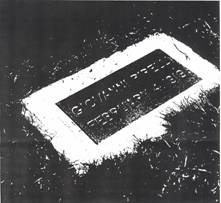
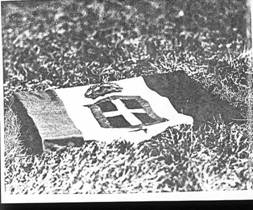
General Fouloise made the opening address that day. Presentation of the tablet to the United States Government was made by Commander Silvie Scaroni, Air Attaché of the Royal Italian Embassy, Washington DC , as shown above. In acceptance of this stone was Major H. H. Arnold, Commanding Officer of Fairfield . Commander Scaroni and Major Puolo Sbarudori arrived from Washington DC on the morning of the ceremony, pictured below.
Soon after that day, that the Order Sons of Italy in Dayton, Lodge #1633 adopted the name John Pirelli as their name. Hence, John Pirelli Lodge #1633.
